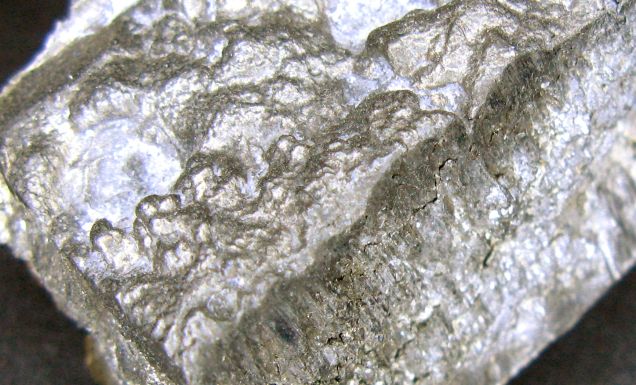How China's "Rare Earth" Weapon Went From Boom To Bust
Post Date: 06 Nov 2014 Viewed: 524

Not so long ago, the U.S. went into full panic mode. China had reached the point where it controlled 97% of the world's rare earth elements—minerals that play a crucial role in manufacturing high-tech products. Were they right to fear that Beijing has a stranglehold over the global economy?
Image of a rare Earth metal via the United Nations
Rare earth elements (REE) are a group of 17 chemically similar metallic elements in the periodic table, plus yttrium and scandium. Despite their name, REE are not rare. In fact, they're rather plentiful in the Earth's crust. But, tremendous effort and investment are required to extract, refine and process them.
Still, lots of people want them. They are the "vitamins of chemistry," says Daniel Cordier, a mineral commodities specialist for rare earths at the U.S. Geological Survey. "They help everything perform better, and they have their own unique characteristics," he says, "particularly in terms of magnetism, temperature resistance and resistance to corrosion."
As such, they are used in materials for multiple high-tech products (see table below). And, REE are widespread in U.S. defense systems, including: precision-guided munitions, lasers, communication systems, radar systems, avionics, night vision equipment and satellites. For example, fin actuators used in precision-guided munitions are specifically designed around the capabilities of neodymium iron boron rare earth magnets.
The first step in extracting rare-earth oxides from the surrounding rock is to crush the rocks and grind them into a fine powder. This is passed through a series of tanks, where the rare-earth elements float to the top. Unwanted minerals sink to the bottom, and this hazardous waste material, called tailings, is sent to ponds for storage. Meanwhile, the resulting concentrate of rare-earth metals is roasted in kilns and then dissolved in acid. The fraction of the resulting slush that contains rare earths, in the form of mixed metal oxides, is removed. Finally, the solvent is neutralized.
The reaction generates a lot of salt: when the Mountain Pass mine [in California] was running at full capacity in the 1990s, it produced as much as 850 gallons of salty wastewater every minute, every day of the year. This waste also contained radioactive thorium and uranium, which collected as scale inside the pipe that delivered the wastewater to evaporation ponds 11 miles away. Several times in the 1990s, cleaning operations intended to remove the built-up scale caused the pipeline to burst, spilling hundreds of thousands of gallons of hazardous waste into the desert. The state of California ordered Molycorp, which was then a unit of the oil company Unocal, to clean up the waste. In 2002, the company, already struggling to make a profit, ran out of space to store its tailings and failed to secure a permit to build a new storage facility. The mine shut down.
China began a dedicated effort to fill the void left by the decline in U.S. production. And, due to lax environmental regulations and cheap labor, Beijing was able to scale-up its operations in a relatively short period of time. By 2009, U.S. policymakers had begun to worry about whether this would have larger implications for the economy and national security.
Then, an event occurred in 2010 that confirmed their worst fears.
An Economic Superweapon
During a maritime border dispute in September 2010, Japan detained the captain of a Chinese fishing trawler, which had collided with two Japanese coast guard vessels. China responded by announcing that it would halt all shipments of rare earth elements to Japan, which used the imported metals in several high-tech industries—notably, magnets that Japan sold abroad or used for making consumer products, such as the Toyota Prius.
Japan immediately released the Chinese fishing captain. The New York Times declared that it was a "humiliating retreat" for Tokyo.



